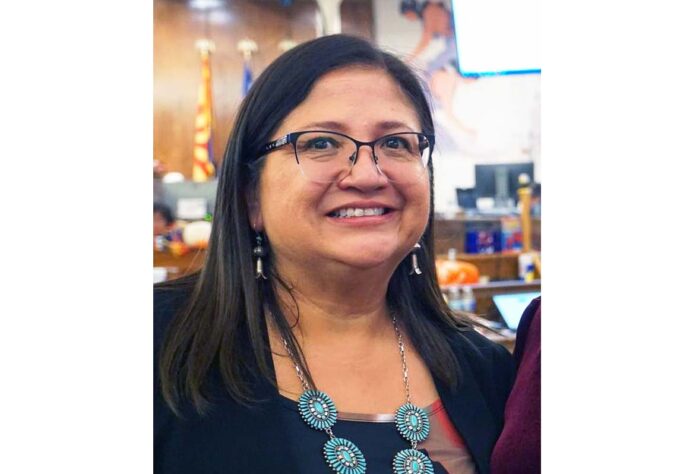WINDOW ROCK, AZ – The Navajo Nation Council unanimously approved legislation appointing Michelle Espino as the Chief Legislative Counsel, effective immediately. Espino brings experienced legal guidance to support the Office of Legislative Counsel.
Espino is an accomplished attorney with a Juris Doctorate from the University of Iowa and over 25 years of legal experience in tribal, state, and federal courts, including the U.S. Supreme Court. Espino has served as Assistant Attorney General for the Navajo Nation Department of Justice, Senior Prosecutor for the Navajo Nation Office of the Prosecutor and as the Executive Director for the Navajo Nation Washington Office.
Having served as Chief Judge for the Mescalero Apache Tribe and the Pueblo of Isleta, Espino has demonstrated expertise in litigation, legislative drafting, and policy development.
“With Michelle Espino’s confirmation, we are taking a decisive step toward stabilizing our legislative framework,” said Navajo Nation Speaker Crystalyne Curley, primary sponsor of the legislation. “Her dedication to the Navajo Nation, paired with her legal acumen, makes her the ideal leader to guide us through complex legal challenges.”
The decision underscores the urgency to fill this critical role, given the demands of legislative functions and the need for timely legal advice. Upon accepting her appointment, Espino emphasized her commitment to bolstering the legislative branch’s legal capacity, improving compliance, and fostering collaboration to advance the Navajo Nation’s policy priorities.
“I am honored to serve as Chief Legislative Counsel for the Navajo Nation,” said Espino. “My goal is to ensure that our legislative processes are efficient, effective, and aligned with Navajo values. I look forward to working closely with council members to enhance our legal infrastructure and address the pressing issues impacting our people.”
Espino’s initial priorities include implementing recruitment strategies to address the 40 percent vacancy rate in the legal department, enhancing compliance frameworks, and supporting ongoing legislative initiatives related to economic development, public safety, and governance.
The confirmation process highlighted broader challenges faced by the Office of Legislative Counsel, including financial limitations that affect staffing and operational efficiency. Council members acknowledged the need to secure additional funding and explore alternative strategies to retain legal expertise within the Nation.
“Filling this position is just the beginning,” said Council Delegate Amber Kanazbah Crotty, co-sponsor of the legislation. “We must also prioritize funding and resources for the legal department to ensure its long-term success and the effectiveness of our legislative branch.”













































